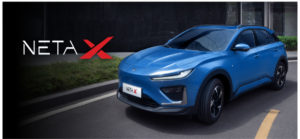Otodiva – Coordinating Minister for the Economy Airlangga Hartarto recently revealed that sales of hybrid cars in Indonesia continue to increase, even without any special incentives from the government. According to Airlangga, This upward trend shows that hybrid cars can survive in the market without needing further support from incentives. However, how to respond Toyota for this statement?
As one of the leading car manufacturers in Indonesia, Toyota has long been known to support incentives for hybrid vehicles. According to them, This incentive is important because hybrid cars are more environmentally friendly than conventional fossil fuel vehicles. Besides that, Toyota also sees incentives as a key driver to accelerate the transition to greener vehicles.
Resha Kusuma Atmaja, Marketing Planning Deputy General Manager PT Toyota Astra Motor (TAM), responded to Airlangga's statement at the Green Initiative Conference in Central Jakarta. According to him, Toyota is committed to creating vehicles that can be enjoyed by all groups, as reflected in their tagline, “It’s Time for Everyone”.
“We want everyone to contribute to environmental conservation efforts, not just certain segments,” said Resha.
Further, he added that the government should not only focus on providing incentives for pure electric vehicles. Because, according to Resha, Electric cars are currently still considered as additional vehicles or additional car by consumers. Meanwhile, to encourage the environmentally friendly vehicle market, segment first buyer or first-time car buyers should be a priority.
Resha emphasized that first car buyers usually use their vehicle as their main car. Therefore, Supporting infrastructure must first be improved so that electric car users feel comfortable and safe in using them. “However, in current conditions, Hybrid cars are a more appropriate choice,” he added.
One of the advantages of hybrid cars, according to Resha, is its non-reliance on electric charging infrastructure. Hybrid cars can still use gasoline when needed, thus providing more flexibility for users. “It's like the chicken and egg theory, should we wait for charging infrastructure first or encourage the use of environmentally friendly vehicles first. We at Toyota want everything to run in parallel,” explained Resha.
Besides that, he compared the situation in Thailand, where even though hybrid car sales are quite high, The government continues to provide incentives. Interestingly, incentives in Thailand are adjusted to the level of emissions successfully reduced by the vehicle. “The Thai government provides incentives based on how much emissions a hybrid car can cut. This shows a strong commitment to the environment,” added Resha.
On the same occasion, Airlangga Hartarto explained the reason the Indonesian government has not provided additional incentives for hybrid cars. According to him, Sales of this type of vehicle are quite good without incentives. “So far, even without incentives, sales have been quite good,” he said when asked about the possibility of providing incentives in the future.
Based on hybrid car sales data during the first semester 2024, recorded as much 25.791 Hybrid car units have been sold in Indonesia. This figure shows an increase of 49 percent compared to the same period in the previous year. With this achievement, The government feels there is no urgency to provide additional incentives in the hybrid car segment.
However, Toyota still maintains that incentives could be a stronger driver in expanding the hybrid vehicle market. They believe that with incentives, market segment first buyer will be more interested in switching to a hybrid car, considering the flexibility and advantages these vehicles offer compared to pure electric cars.
Although there has been no official decision from the government regarding additional incentives, Toyota remains optimistic about the future of hybrid vehicles in Indonesia. With the right support, they believe hybrid cars will continue to develop and become the main choice for consumers in the future.







